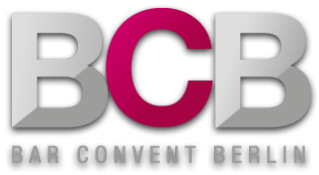Sustainability in Bars: Learning from Best Practices
© Shutterstock
Bar ohne Namen
Entschlossen verweigert sich Savage, der Bar einen Namen zu geben. Stattdessen sind drei klassische Design-Symbole das Logo der Trinkstätte in Dalston: ein gelbes Quadrat, ein rotes Viereck, ein blauer Kreis. Am meisten wurmt den sympathischen Franzosen dabei, dass es kein Gelbes-Dreieck-Emoji gibt. Das erschwert auf komische Weise die Kommunikation. Der Instagram Account lautet: a_bar_with_shapes-for_a_name und anderenorts tauchen die Begriffe ‘Savage Bar’ oder eben ‚Bauhaus Bar‘ auf.
Für den BCB bringt Savage nun sein Barkonzept mit und mixt für uns mit Unterstützung von Russian Standard Vodka an der perfekten Bar dazu.
Sustainability is becoming an increasingly important issue, with more and more businesses in the industry developing creative concepts and finding new solutions to make their bars more sustainable. Angus Winchester has been looking into the issue and tells us who is already doing it right.
One of the joys as well as challenges I now have as general manager is putting into practice all that I write about and teach about in articles as well as at events. From hiring issues to improving diversity to staff training and much more. It's relentless, but necessary. It's all part of the never-ending game that is business and life, where you never win, you're always ahead or behind. But the most successful people are those who focus on the right issue at the right time, and the most pressing issue is certainly the state and fate of our planet, and by that, I mean the dreaded word "sustainability."
The pressure on businesses is growing
The pressure on natural resources created by the world's growing population is obvious and real, and is a major problem for us as a human race. And while the solutions sometimes seem simple and obvious (like not using plastic straws), the issue is so vast that most of us don't know exactly where to start.
Inspiration for change
For me personally, one of the most outstanding program items at BCB last year was Louisa Dodd's presentation on auditing sustainability. She represents the organization that chooses the most sustainable bar as part of the 50 Best Bars. Her methodology provided many attendees with a framework of ten areas of interest for bars and restaurants, and at least a starting point. However, the logical conclusion from this and the study of the activities of the awarded bars is both inspiring and depressing.
Did I miss something?
Bars like the "Penicillin" in Hong Kong or the "Re" in Sydney are really exciting concepts that do amazing things. However, sitting in your own bar in the cold light of day, staring at your computer and reading about them, you feel like you've missed out on important lessons that everyone else seems to have received. Almost like a networking event where everyone else has made important contacts but you.
"Re" from Sydney: Here's how Zero Waste works
Re is currently the gold standard for bars in terms of environmental sustainability. Owner Matt Whiley has won awards for his bars in the past. With Re, however, he has gone one step further by aiming for zero waste and thus harming the planet as little as possible. From a bar made from recycled plastic to seats covered in pineapple leaves to ceramics made by companies that use surplus clay, the design is simple and clever. The use of food destined to be thrown away by someone else is impressive. Even the music is playfully designed using original music that other people have taken samples from. It is as amazing as it is astounding.
Inspiring concept from Hong Kong: the "Penicillin"
Penicillin in Hong Kong is another closed-loop bar that focuses on reuse, reduce and recycle, winning as many awards and fans for its philosophy as it does for its drinks and service. From the use of ecoTOTEs to reduce single-use glasses to the relentless use of in-house fermentation and re-distillation, the guiding principle of "think twice before you throw something in the rubbish bin" is easy to understand, but it's hard to know where to start, and there also seem to be many obstacles-often financial. But as the owners say, some businesses are reluctant to adopt sustainable solutions because of the perceived expense but setup costs are comparable to any other bar, with more potential for long-term savings.
You simply have to start
Even if it's something simple that's considered "low hanging fruit," getting started is key, and getting everyone involved in the operation is critical. At least that was my theory, and I set out to find a meaningful yet achievable starting point beyond paper straws and turning off as many electrical devices as possible at the end of the evening. And in my search, I came across an extremely brilliant starting point - "Super Juice."
Reduce food waste and fruit orders with "Super Juice"
Super Juice, also known as Oleo Citrate, has fundamentally changed my business. It's a more sustainable solution to fresh citrus juice that has a much longer shelf life. Not only does it reduce our food waste (lime and lemon peels, which I believe are the biggest food waste in most bars), but it also reduces our fruit ordering, which saves us money. It's also an easy way to show employees that we want to be more environmentally conscious, and we can put it on the menu and start conversations with guests as a result. In addition, employees have preferred the taste in blind tastings, and Super Juice has a shelf life four times longer than "real" juice. This success has strengthened our team and given us a starting point. Now the only question is what to do next, but we are full of optimism and already have a win under our belt.
Looking for more drinks industry insights?
Join the entire industry at BCB
